Media & The Regime: How Independent Journalists will shape the USA
Take the knee or face extermination
The memory of Nazi Germany’s absolute control of the press is more than a distant cautionary tale. Hidden in plain sight, the same tale provides us with a vivid a blueprint, showcasing how complicit media will pave the path to tyranny. A blueprint that the incoming regime has followed for years, while we were too complacent to call them out and change our behaviors.
Headlines that followed the old adage “If it bleeds, it leads” kept Trump above the fold, while the byline whitewashed his insanity. Mass media across almost all domains, although some notable examples are are still around (for now), have been complicit for years.
Meanwhile, Trump’s continuous antagonism toward individual journalists, the legal pressure exerted on major networks (ABC settled w/Trump), and the daily barrage of insults and threats aimed at “the free press” form a pattern to obvious to ignore. It is a repetition of Nazi Germany.
The Suppression of the Press
Throughout human history, only few eras illustrate the raw horror of a society stripped of its capacity to speak truth to power like Hitler’s Germany. Under the Nazis regime, the press was forced to shape from a diversified selection of voices into a puppet theater of propaganda.
Independent journalists, from the well-known professionals to the ordinary citizens documenting atrocities on scraps of paper, were relentlessly hunted down and and forced to conform or face extermination. The aftermath was more than mere silence; it became an orchestrated echochamber of conformity, lies, and propaganda, that paved the way for industrial-scale genocide.
Since 2015, we are forced, yet again, to live and navigate in a world where Donald Trump, an aspiring dictator, openly demonizes journalists.
Hitler’s “Lügenpresse” (lying press), has a contemporary translation. “Fake News”. Thus, we must ask ourselves: Are we at risk of retracing history’s most dangerous steps? Will the steady drumbeat of hostility, intimidation, and appeasement push us closer to a system in which (regime) critics are pushed into the shadows or erased altogether?
The lessons from 1930s and 1940s Germany are not just dusty relics, told as horrifying anecdotes, but serve as urgent warnings.
Mainstream media has decided to appease Trump. ABC settled for $15 million, the Des Moines Register gets slapped with a defamation suit, and what used to be a reasonably respectable profession, will go the way of unrelenting propaganda.
Meanwhile, citizen journalists are mostly unsupported, personally and professionally vulnerable and underfunded, if they’re funded at all.
By beating mainstream media into submission and targeting independent journalists, Americans risk slipping from the fragile safety of open discourse into the abyss of authoritarian silence.
The Nazi Stranglehold on the Mainstream Press
From the moment Hitler took the reins of power in 1933, the Nazis understood that controlling information was the key ingredient to manufacturing consent.
Mainstream media institutions, a cornerstone of Germany’s intellectual and cultural life, were among the first to be placed under suffocating state supervision. This wasn’t simply a matter of strong-handed editorial suggestions. Rather, it was a systematic disembowelment of the free press, orchestrated by Joseph Goebbels and the Reich Ministry of Public Enlightenment and Propaganda [1].
Coercion and Control: The Nazis utilized legal, financial, and violent tactics to bring the press into submission. The Reich Press Law of October 4, 1933, effectively wiped out a free marketplace of ideas by requiring that editors align their content with Nazi ideology or face immediate dismissal, arrest, or extermination[2]. Independent editors who previously championed Weimar-era freedoms were forced to flee, surrender their positions, or sign on as propaganda mouthpieces. Critically acclaimed newspapers like Frankfurter Zeitung were given a muzzle, and others, like Vossische Zeitung, shut down entirely under the relentless pressure by the regime. A once-thriving mosaic of perspectives was replaced by a monochromatic propaganda sheet relentlessy repeating the virtues of Aryan supremacy.
Propaganda as Oxygen: Goebbels understood media as a tool not merely for spreading information but for weaponizing a narrative. Every article was filtered through censors who ensured that the public digested only the state’s approved version of events. Even radio broadcasts, back then a cutting-edge medium, were under strictest control, forced to funnel Nazi ideology into living rooms across Germany [3].
Soon, the line between journalism and propaganda blurred unrecognizably. Journalism became public relations for genocide, justifying Nuremberg’s racist laws, praising the annexation of neighboring countries, and normalizing the mass murder of Europe’s Jews, Roma, homosexuals, and disabled people.
By the time the Holocaust was in full swing, the press had become an indispensable cog in the machine of extermination.
Citizen Journalists: Courage and Catastrophe
While mainstream outlets kissed the ring, bowing to Hitler, some brave souls, precursors to today’s citizen and independent journalists, risked everything to expose the truth. These individuals lacked institutional support, brand recognition, and often even formal training. Yet their resistance, handwritten leaflets, clandestine pamphlets, underground newsletters, was nothing short of heroic. For many, it also proved fatal.
Remember their names: Carl von Ossietzky, an editor of the Weltbühne magazine and a Nobel Peace Prize laureate, revealed Germany’s secret rearmament in the early 1930s. His reward: imprisonment, tortune while in concentration camps, and eventual death by tuberculosis in 1938, all set against the backdrop of international cowardice, apathy, and grotesquely, even some admiration [4].
The White Rose Group, a circle of university students in Munich. Among these young academics were Hans and Sophie Scholl, who epitomized the moral ferocity of citizen journalism under terror. They distributed leaflets that documented Nazi crimes on the Eastern Front and the wholesale murder of Jews. Their hopes were pinned on having a great enough impact, for Germans to awaken from their moral coma. In a regime obsessed with total control of information, these pamphlets were incendiary bombs of truth [5]. Their courage ended at the guillotine: Hans and Sophie Scholl and Christoph Probst were arrested, convicted in a sham trial, and beheaded in 1943 [6]. Their execution emphasized a harsh reality: writing the truth, even in secret, meant a death sentence.
Other lesser-known figures deserve mention. For example, Helmuth Hübener, a Mormon teenager from Hamburg, secretly listened to the BBC and wrote leaflets criticizing Hitler’s war. Arrested at seventeen, he was executed in 1942, as the youngest known resistance fighter, murdered by the regime [7].
In all, citizen/independent journalists, who were ordinary people equipped with pen, paper, and conscience, were treated as enemies of the state. Their blood and ink as silent witnesses to a regime that considered truth itself seditious.
The Impact of Absolute Media Control
The Nazis orchestrated a reality in which truth had no foothold. Without dissenting voices, ordinary Germans were bombarded daily by triumphalist headlines and state-sponsored illusions. With no counter-narrative, the regime convinced millions that Jews were subhuman, that slaughter was necessary, that conquest was honorable, and that loyalty meant silence. Without a free press, the Nazi regime’s crimes became more achievable.
Information tyranny greased the gears of genocide.
The implications are profound. Modern societies often assume that mass murder on such a scale cannot happen again. After all, we have the internet, smartphones, and social media. We have rights enshrined in constitutions.
The reverse side the coin is that technology or laws lull us into complacency. The Nazi example teaches that if those in power can delegitimize and co-opt the press, systematically discredit truth-tellers, critical thinkers, and regime-dissidents, and terrorize independent voices, even advanced and “cultured” societies are willing to descend into barbarism.
Trump’s Assault on Journalists
Donald Trump is not Adolf Hitler, and the United States in the 21st century is not the Weimar Republic. Indeed, there are some differences. Yet, history’s dark lessons have a disturbing reverb today.
When Trump repeatedly brands journalists as “the enemy of the people,” and the press as “Fake News”, he carbon-copies authoritarian rhetoric and strategies that aim to erode the public’s faith in mainstream and independent media [8].
Hostility and Intimidation: During his first term, up to today, Trump targets his propaganda against CNN, The New York Times, The Washington Post, the Des Moines Register, and any other news outlet critical of the agenda. Moreover, his antics, behaviors, and staged outrage, manufacture consent in those who are devoid of critical thinking, providing enough airspace for propaganda to take hold.
At a whim, he stripped journalists of White House press credentials, threatened to “open up” libel laws to sue media outlets. Trump deliberately escalates a climate of suspicion and rage among his followers [9]. The direct consequence: journalists covering Trump rallies often required security escorts to protect them from harassment or physical assault by uneducated supporters who had internalized the message that all reporters are villains.
Legal Vulnerabilities and Appeasement: Considering the $15 million ABC settlement, the vulnerability of mainstream outlets is pronounced, as is their ‘falling in line”, which accentuates just how perversely powerful Trump has become [10].
The settlement, irrespective of the financial arrangements, raises unsettling questions:
When major networks or newspapers appease a convicted felon like Trump to avoid financial damage or legal turmoil, what signal does that send?
Will mainstream media giants, faced with the choice between a costly legal battle or subtle editorial compromise, choose compliance over courage?
Will they water down investigative reporting, reduce critical commentary, or provide soft coverage in exchange for access or reduced legal risks?
Are they afraid of Trump’s violent fan base, capable of causing destruction and harm?
These are “soft questions”, and merely looking at past media behaviors, the answer is written in bolded headlines: Yes, mainstream media will comply.
As in the Nazi era, once the largest platforms begin to buckle under pressure, smaller voices find themselves adrift in a hostile environment, often left entirely on their own.
The dynamic of the past is a dangerous cursor, pointing at a future where major outlets, scared of lawsuits or subscriber backlash, inch closer to propaganda.
Granted, we (still) have constitutional protections that Nazi Germany lacked. But laws are only as strong as the public’s will to enforce them. If a significant portion of the population can be convinced that the press is fundamentally dishonest, will they care when reporters are smeared, threatened, physically harmed, or worse?
Independent Journalists. Lone Adversaries: Independent journalists critical of Trump or his allies will face a treacherous mediascape. Too many have already been targeted with online harassment and death threats. Others experience reputational smears across social media.
Without the protective cloak of powerful newsrooms, independent journalists stand directly in the crosshairs. Twitter/X suspensions, algorithmic downgrades on TikTok, Instagram, Facebook, or coordinated reporting or harassment campaigns can silence them as effectively as an authoritarian’s prison cell. For the time being, without the heavy machinery of a totalitarian state. The methods differ, but the chilling effect is real, and if the current trajectory holds, platform compliance will be offered or forced, leaving independent journalists with no place to publish.
Social Media Platforms - take the knee or get banned
Modern citizen journalism thrives in digital spaces. Substacks, TikToks, podcasts, YouTube channels, Twitter/X feeds, and other forms of newsletters allow ordinary citizens to challenge misinformation, disinformation, ill-fated legislation, populist rhetoric, and more.
Unlike in Hitler’s Germany, where clandestine pamphlets were the only outlets, we now have global platforms that can amplify dissenting voices to millions. The potential for truth to reach beyond borders is immense. For now.
Unfortunately, platforms are increasingly compromised. Algorithms prioritize engagement—often outrage and sensationalism—over verified truth. Shadowbanning, demonetization, and inconsistent “community guidelines” enforcement leave independent journalists vulnerable to invisible gatekeepers.
Worse, trolls and bot armies can mount mass harassment campaigns, discouraging critical commentary, or mass-report content, leading to the suspension of the journalist. While Hitler’s regime relied on overt violence, modern authoritarians exploit digital tools, disinformation, and platform policies that can quietly bury dissenting voices under a flood of noise.
If Trump convinced a critical mass that certain journalists are not just biased but enemies of the state, how long before Big Tech firms face overwhelming political and economic pressure to deplatform them?
So far, the answer is in Zuckerberg donating $1 million to Trump’s inauguration fund, TikTok’s CEO Shou groveling to Mar-A-Lago for a meeting with Trump, the $15 million ABC settlement, and more.
This scenario may seem hyperbolic, but consider how swiftly social media giants already change their course when faced with regime pressure or the threat of legislation that could impact their bottom line. Media will sell you out, whether it’s mainstream newsmedia, or social media. Their compliance will always outrank decency, morality, and ethics.
This dynamic echoes the Nazi toolset: it’s about pressure and incentives, and about warping the information space to exclude harsh truths.
Will the Press or Citizen Journalists Be Safe?
For now, American democracy is more robust than the fragile Weimar experiment, but it is not invincible. Any democracy can falter if the public abandons the pillars that uphold it. One of these pillars is a free and critical press. Without watchdog journalists holding power to account, corruption thrives, injustices go unnoticed, and abuses metastasize into terminal cancer.
Critics might push back, arguing that comparing Trump’s attacks on the press to Hitler’s orchestrated propaganda empire is irresponsible and alarmist.
They may say, “We’re nowhere near that level of oppression.” True, not yet.
But does the absence of concentration camps today guarantee they could never arise tomorrow under some extremist successor? Texas has already set aside 1400 acres to serve Trump’s ambition for mass deportation.
History warns us that once the public’s trust in the press erodes, once independent journalists become pariahs, all manner of atrocities become more feasible. It’s not an immediate slide, but a gradual descent—a series of compromises, legal settlements, algorithmic tweaks, and rhetorical escalations that cumulatively stifle the truth, laying the rails toward the entrance of atrocity.
If current trends persist, critically needed independent journalists who refuse to toe the line will find themselves isolated. They will lose access to social platforms that host their work. They will face crippling defamation lawsuits, backed by wealthy partisans with endless resources. They will be silenced by threats to their families or targeted with relentless character assassination campaigns. Such tactics may differ from the Gestapo’s door-kicking brutality, but their goal—to silence dissent—is eerily familiar.
Lessons from the Past, Imperatives for the Present
History does not exist to comfort us. It exists to challenge, instruct, and warn. The Nazi subversion of the press teaches us that silence and consent have deadly consequences. It also shows the extraordinary courage required to stand against a colossal propaganda machine. If we want to avoid a future where one dominant narrative smothers all others, we must act now - if it’s not too late already.
Defend Institutional Safeguards: Legal protections for journalists must be strengthened. Libel laws should protect reputations without becoming weapons to intimidate reporters and outlets. Courts must remain committed to stand opposed to strategic lawsuits against public participation (SLAPPs), which are often employed to silence critical voices.
Support Independent Journalism Financially and Morally: Mainstream meida is not dead yet, and even while flawed, some still reach large audiences and maintain the capacity for investigative depth. When they show courage publishing explosive revelations, standing by their reporters, then we must support them. When they show cowardice, appeasing powerful figures to evade lawsuits, we must tune them out.
Perhaps of greater significance in the immediate future, independent journalists on Substack, YouTube, podcasts, and grassroots platforms require our subscriptions, donations, and moral support. If we fail to support them, we leave truth defenseless in the public arena.
Foster a Culture of Media Literacy and Skepticism: Education is key. Learn the skills to distinguish between fact and propaganda, to understand the historical context of media suppression, and to value independent journalism as a civic necessity. A public equipped with critical thinking skills is more resistant to lies and manipulation.
The Moral and Existential Stakes
In Hitler’s Germany, critics were tortured, murdered, or chased into exile. The regime orchestrated a symphony of deceit that facilitated a genocide so enormous it scars humanity to this day.
While Trump and his movement have not yet replicated these crimes, their attacks on journalists reverberate with historical undertones we cannot afford to ignore.
The moment major media players settle with Trump, and the moment citizen journalists face digital lynch mobs without systemic support, we inch closer to a world where truth is negotiable, and moral clarity is forfeit.
If we continue on a path where appeasement becomes standard, where calling out wrongdoing risks career destruction, and where those who speak truth to power are smeared as enemies, the future carries the stench of death.
Democracy rests on the premise that an informed citizenry can hold leaders accountable. Without a fearless, fact-driven, and pluralistic media landscape, that premise crumbles.
We cannot afford to let history repeat itself.
###💙&✊###
~Z.
References
[1] Ian Kershaw, Hitler: A Biography (W. W. Norton & Company, 2008), pp. 243–246.
[2] Richard J. Evans, The Third Reich in Power: 1933–1939 (Penguin, 2006), pp. 119–131.
[3] U.S. Holocaust Memorial Museum, “Nazi Propaganda,” Holocaust Encyclopedia, https://encyclopedia.ushmm.org/.
[4] Harold Marcuse, “Carl von Ossietzky,” UCLA Department of Germanic Languages, https://www.history.ucsb.edu/faculty/marcuse/.
[5] Inge Scholl, The White Rose: Munich, 1942–1943 (Wesleyan University Press, 1983).
[6] U.S. Holocaust Memorial Museum, “The White Rose: A Lesson in Dissent,” Holocaust Encyclopedia, https://encyclopedia.ushmm.org/.
[7] Alan Keele, “Helmuth Hübener: The Boy Who Dared,” BYU Studies Quarterly, Vol. 40, no. 3 (2001), pp. 151–174.
[8] Donald Trump, various public statements (2017–2021), compiled by The New York Times, “Trump’s Attacks on the Press,” https://www.nytimes.com/
[9] Margaret Sullivan, Ghosting the News: Local Journalism and the Crisis of American Democracy (Columbia Global Reports, 2020).
[10] CNN Media, “George Stephanopoulos and ABC reach settlement with Trump,” December 16, 2024, https://www.cnn.com/2024/12/16/media/george-stephanopoulos-trump-settlement-abc/index.html.



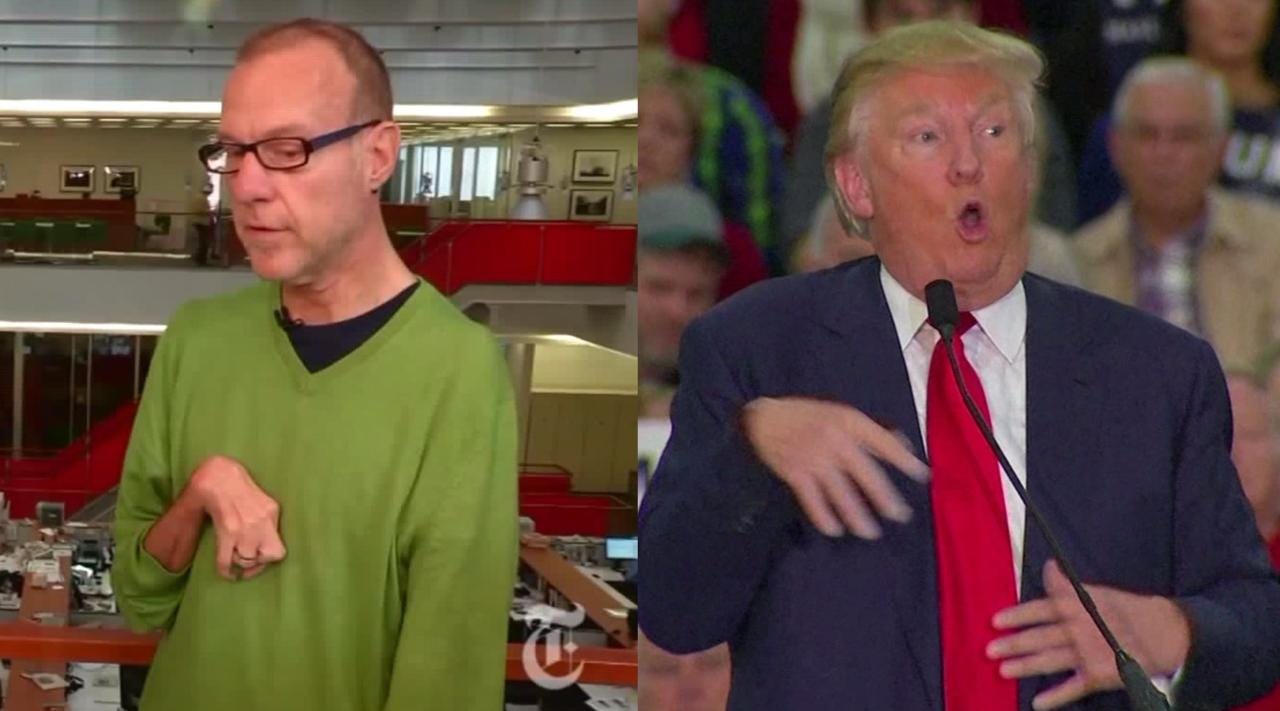
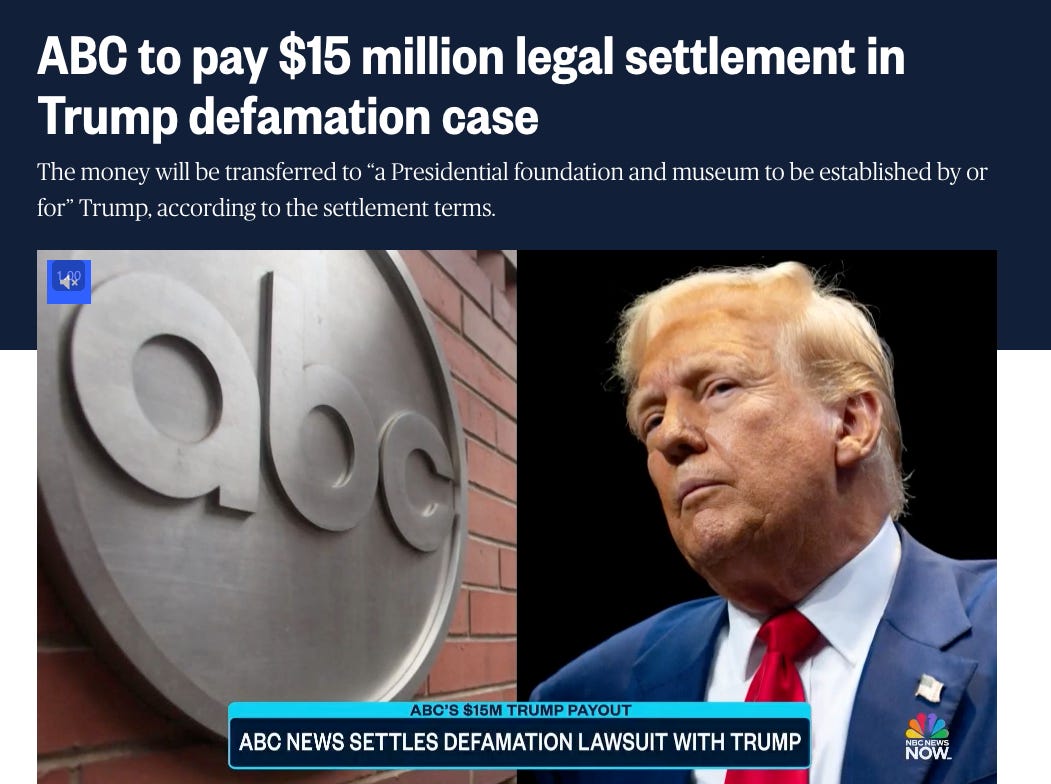
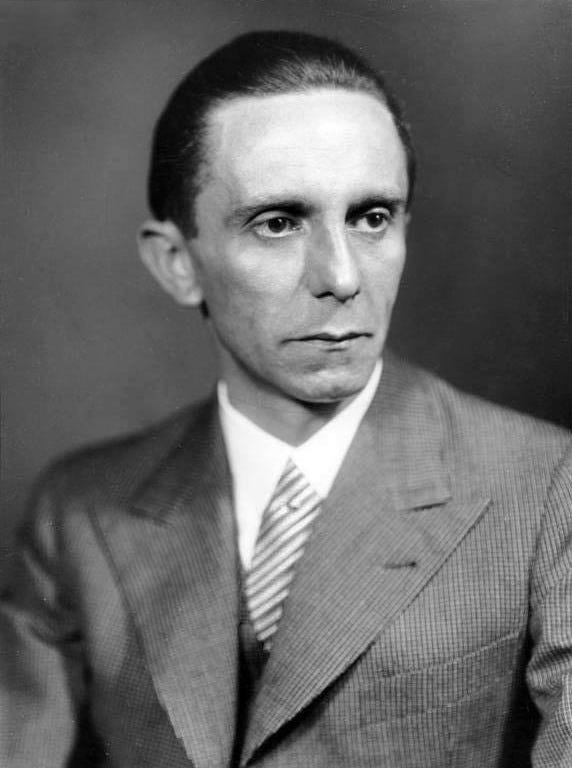

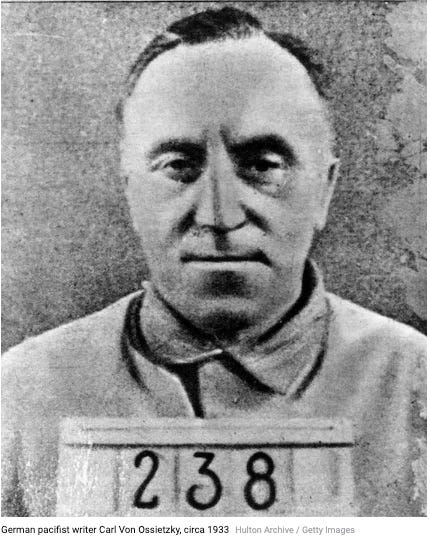
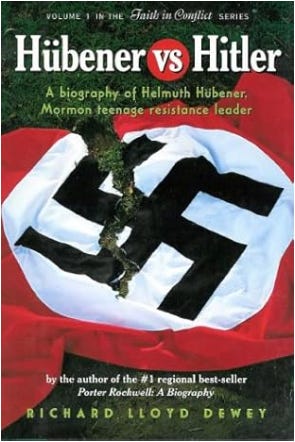
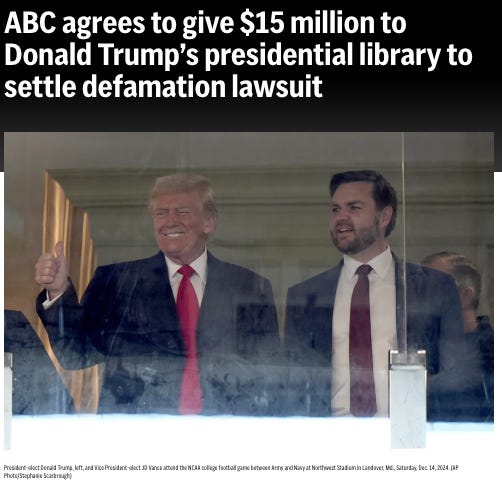

The Arab Awakening caught dictators with their pants down, and although autocrats are better equipped to stifle the voices of dissent and mobilization online, I remain hopeful the truth will find a way to reach people in the digital sphere. There is always a way.